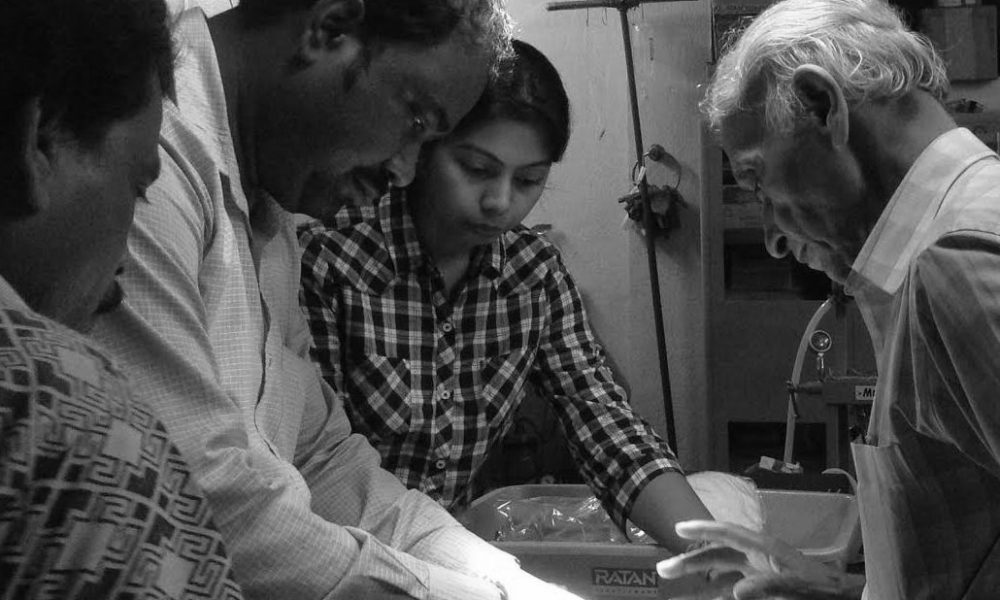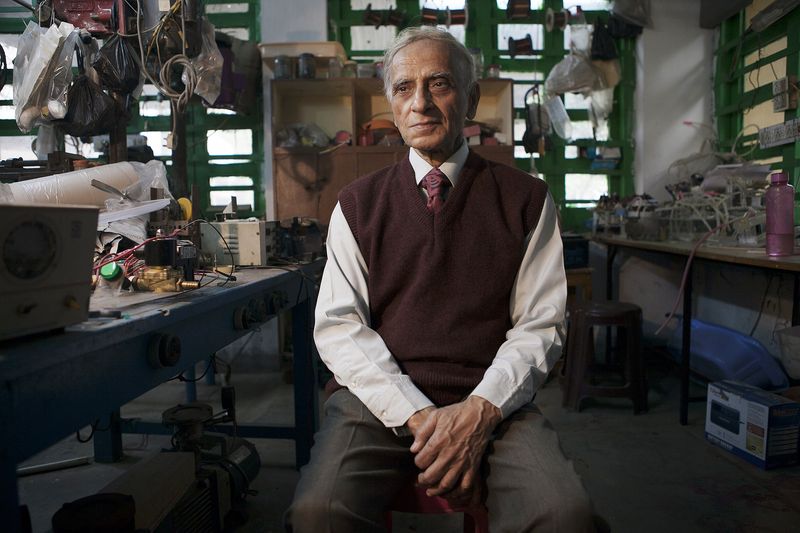
Revolutionary male birth control method by Indian may (finally) get approved
Sujoy Guha, a 76 six year old biomedical engineer who has invented a male contraceptive that’s proven to have a 98% success rate in preventing pregnancy(the same as condoms) is on the lookout for a company that would sell it.
As per Herjan Coelingh Bennink, a gynaecology professor who helped create the contraceptives Cerazetta and Implanon, the key problem with finding an interested company is that most big pharma firms are led by men who share the feeling that men would never use the contraceptive.

Prof: Sujoy Guha
New technique
The new technique which impairs male fertility makes use of a polymer gel which is injected into the sperm-carrying tubes in the scrotum. The gel which carries a positive charge acts as a buffer on negatively charged sperm, making them infertile.
The treatment is reversed using a second shot that would break down the gel, and allow the sperm to reach the penis as normal. The treatment is called reversible inhibition of sperm under guidance or RISUG.
After years of human trials, researchers are ready to submit the drug for regulatory approval. Though the results have shown that it’s safe and effective, drugmakers have shown little interest.
The procedure has been found to be 98 percent effective in preventing pregnancy- around the same as condoms if used every time. RISUG also incurs no major side effects, as per R.S Sharma, head of reproductive biology and maternal health at the Indian Council of Medical Research. In India, so far, around 540 men have received it. Pregnancies are being prevented in their partners even 13 years after the treatment in some cases, he said.
This year, a submission to regulators would seek approval for RISUG as a permanent method to control birth. Sharma said that that would be appended with clinical data which supports reversibility.
Than almost any other nation, India has more number of married women with an unmet need for family planning. Social stigma and not enough privacy in stores mean that condom use in the country is under 6 percent.
Given such circumstances, Guha’s RISUG may just be what the doctor ordered!
From an economic perspective, if RISUG is launched within the next two years as expected, it would help in the Indian contraceptive market’s projected growth by 17 percent by 2021, as per a report from the New Delhi based Pharmaion Consultants.
So close to a launch once
In 2002, the then health minister C.P.Thakur announced that RISUG would be launched immediately. However, the clinical trials had to be stopped due to charges that it was toxic. The trials were restarted only five years later. In a sense, for the past 14 years, Guha has been proving over and over again the thing that has already been successfully proven.
RISUG is probably the only reversible male contraceptive in the world. It’s most certainly the only one to have come up this far in clinical trials, that too earning such good results.
When the trails were stopped in 2002, Guha met the then President, Dr. Abdul Kalam, who told him, “Sujoy, you know this is not a scientific block. You have to solve this in other ways.”
RISUG’s roadblocks, according to Guha are not due to the government but the international pharma lobby. The delays with the trails were brought on by the National Institutes of Health in the US. They wished to promote a new drug for years which called for regular ingestion, like with the female pill, according to Guha. A hormone-based drug means prospects for continual demand and long-term profit.
Since RISUG hasn’t attracted the interest of big pharma companies, at least not enough to want them to sell it, its creator found himself in a financially tight spot, so much so that he had to sell his flat in Delhi.
“I guess Risug is a bad business proposition: inexpensive, single-use and it does not require major surgery,” he said.
Hopefully, with the approval, things would change for good.
Image credits: thewire.in, bloomberg.com